Sermon on the Transfiguration of our Lord and God and Saviour, Jesus Christ
By St. Ephraim the Syrian
1. From the land comes the joy of harvest, from the vineyard fruits that give food, and from the Scriptures teaching that gives life. The land has one season for the harvest, and the vineyard has one season for the vintage, but the Scripture when read always overflows with teaching that gives life. The land when it has been harvested lies fallow and the vineyard when the grapes have been picked is unproductive, but when Scripture is harvested the grapes of those who expound it are not lacking in it. It is picked every day and the grape clusters of the hope in it are never exhausted. Let us then draw near to this land and enjoy its life-giving furrows; and let us harvest from it grapes of life, the words of our Lord Jesus Christ, who said to his Disciples, ‘There are some of those standing here who will not taste death until they see the Son of man coming in his glory’.[1]
2. ‘And after six days he took Simon Peter and James and John his brother to a very high mountain and he was transfigured before them, and his face shone like the sun, and his garments became white like light’.[2] Men whom he said would not taste death until they saw the image of his coming, are those whom he took and led up the mountain and showed them how he was going to come on the last day in the glory of his divinity and in the body of his humanity.
3. He led them up the mountain to show them who the Son is and whose he is. Because when he asked them, ‘Whom do men say the Son of man is?’[3] They said to him, some Elias, others Jeremias, or one of the Prophets. This is why he leads them up the mountain and shows them that he is not Elias, but the God of Elias; again, that he is not Jeremias, but the one who sanctified Jeremias in his mother’s womb;[4] not one of the Prophets, but the Lord of the Prophets, who also sent them. And he shows them that he is the maker of heaven and earth, and that he is Lord of living and dead. For he gave orders to heaven and brought down Elias, and made a sign to the earth and raised up Moses.
4. He led them up the mountain to show them that he is the Son of God, born from the Father before the ages and in the last times incarnate from the Virgin, as he knows how, born ineffably and without seed, preserving her virginity incorrupt; for wherever God wills it, the order of nature is overcome.[5] For God the Word dwelt in the Virgin’s womb, and the fire of his divinity did not consume the members of the Virgin’s body, but protected them carefully by its nine month presence. He dwelt in the Virgin’s womb, not abhorring the unpleasant smell of nature, and God incarnate came forth from her to save us.
5. He led them up the mountain to show them the glory of the godhead and to make known to them that he is the redeemer of Israel, as he had shown through the Prophets, and they should not be scandalised in him when they saw his voluntary sufferings, which as man he was about to suffer for us. For they knew him as a man, but did not know that he was God. They knew him as son of Mary, going about with them in the world[6], and he made known to them on the mountain that he was Son of God and God. They saw that he ate and drank, toiled and rested, dozed and slept, things which did not accord with his divine nature, but only with his humanity, and so he took them to the mountain that the Father might call him Son[7] and show that he is truly his Son and that he is God.
6. He led them up the mountain and showed them his kingship before his passion, and his power before his death, and his glory before his disgrace, and his honour before his dishonour, so that, when he was arrested and crucified by the Jews, they might know that he was not crucified through weakness, but willingly by his good pleasure for the salvation of the world.
7. He led them up the mountain and showed the glory of his divinity before the resurrection, so that when he rose from the dead in the glory of his divine nature, they might know that it was not because of his harsh toil that he accepted glory, as if he lacked it, but it was his before the ages with the Father and together with the Father, as he said as he was coming to his voluntary passion,[8] ‘Father, glorify me with the glory which I had with you before the world existed’.[9]
8. And so on the mountain he showed his Apostles the glory of his divinity, concealed and hidden by his humanity. For they saw his face bright as lightning and his garments white as light. They saw two suns; one in the sky, as usual, and one unusually; one visible in the firmament and lighting the world, and one, his face, visible to them alone. His garments white as light showed that the glory of his divinity flooded from his whole body, and his light shone from all his members. For his flesh did not shine with splendour from without, like Moses,[10] but the glory of his divinity flooded from him. His light dawned and was drawn together in him. Nor did depart somewhere else and leave him, because it did come from another place and adorn him, nor was it for his use. And he did not display the whole depth of his glory, but only as much as the limits of their eyes could encompass.[11]
9. ‘And there appeared to them Moses and Elias talking with him’.[12] And the words that they said to him were such as these: they were thanking him that their words and those of all their fellow Prophets had been fulfilled by his coming. They offered him worship for the salvation which he had wrought for the world for the human race; and that he had fulfilled in reality the mystery they had only sketched. There was joy for the Prophets and the Apostles by this ascent of the mountain. The Prophets rejoiced when they saw his humanity, which they had not known. The Apostles also rejoiced when they saw the glory of his divinity, which they had not known, and heard the voice of the Father bearing witness to his Son; and through this they recognised his incarnation, which was concealed from them. And the witness of the three was sealed by the Father’s voice and by Moses and Elias, who stood by him like servants, and they looked to one another: the Prophets to the Apostles and the Apostles to the Prophets. There the authors of the old covenant saw the authors of the new. Holy Moses saw Simon the sanctified; the steward of the Father saw the administrator of the Son. The former divided the sea for the people to walk in the middle of the waves; the latter raised a tent for the building of the Church. The virgin of the old covenant saw the virgin of the new:[13] [Elias and John;] the one who mounted on the chariot of fire and the one who leaned on the breast of the flame. And the mountain became a type of the Church, and on it Jesus united the two covenants, which the Church received, and made known to us that he is the giver of the two. The one received his mysteries; the other revealed the glory of his works.
10. Simon said, “It is good for us to be here, Lord”.[14] “Simon, what are you saying? If we remain here, who fulfils the word of the Prophets? Who seals the sayings of the heralds? Who brings to perfection the mysteries of the just? If we remain here, in whom are the words, ‘They dug my hands and my feet’[15] fulfilled? To whom do the words, ‘They parted my garments among them, and cast lots for my clothing’[16] apply? To whom does, ‘They gave me gall as my food, and with vinegar they quenched my thirst’[17] relate? Who confirms, ‘Free among the dead?’[18] If we remain here, who will tear up the record of Adam’s debt?[19] And who will pay his debt in full? And who will restore to him the garment of glory?[20] If we remain here, how will all that I have said to you come to pass? How will the Church be built?[21] How will you take the keys of the kingdom of heaven from me?[22] What will you bind? What will you loose? If we remain here, everything that was said through the Prophets will come to nothing.”
11. He then said, “Let us make three tents here, one for you, one for Moses and one for Elias”.[23] Simon was sent to build the Church in the world, and he is making tents on the mountain; for he was still looking at Jesus in human terms, and placed him with Moses and Elias. And besides this he showed him that he did not need his tent, for it was he who had made for his fathers a tent of cloud in the desert for forty years.[24] “For while he was still speaking, a cloud of light overshadowed them”. [25] “Do you see a tent made without toil, Simon? A tent that prevents heat and contains no darkness? A tent that blazes and shines?”[26]
12. And while the Disciples were marvelling, out of the cloud a voice was heard from the Father, saying, “This is my beloved Son, in whom I am well-pleased. Listen to him.”[27] At the voice of the Father, Moses returned to his place and Elias returned to his country, and the Apostles fell on their faces to the ground, and Jesus stood alone, because the voice was fulfilled in him alone. The Prophets left and the Apostles fell to the ground, because the Father’s voice in witness, “This is my beloved Son, in whom I am well-pleased. Listen to him”, was not fulfilled in them. The Father taught them that Moses’ dispensation was fulfilled, and that they should listen to the Son, “For Moses, as a servant, spoke what he was ordered to, and he proclaimed what he had been told, and so did all the Prophets, until the one to whom it belongs has come,[28] that is Jesus, who is Son, not servant, Lord and not slave, who is master and not subject, lawgiver and not subject to the law. By divine nature, ‘This is my beloved Son’”. On the mountain the Father made known to the Apostles what was hidden from them. The One Who Is[29] reveals the One Who Is. The Father makes known the Son.
13. At that voice the Apostles fell on their faces to the ground; for there was a fearsome thunder, so that the earth shook at his voice, and they fell to the ground.[30] It showed them that the Father had drawn near; and the Son called them with his voice and raised them up.[31] For as the voice of the Father had thrown them down, so too the voice of the Son, raised them up by the strength of his divinity, which dwelt in his flesh and was united in it without change, both remain indivisibly and unconfusedly in one hypostasis and one person. He did not, like Moses, become resplendent from without, but as God he blazed with glory. For Moses was anointed with splendour by the appearance of his face, while Jesus in his whole body blazed, like the sun with its rays, with the glory of his divinity.
14. And the Father cried out, “This is my beloved Son, in whom I am well-pleased. Listen to him”. The Son was not separated from the glory of the godhead, for the Father and the Son with the Holy Spirit are one nature, one power and once essence and one kingship. And he cried out to one with a simple name[32] and with fearsome glory. And Mary called him ‘son’, not separated from the glory of his divinity by his human nature; for he is one, God who appeared in a body to the world. His glory revealed the divine nature that was from the Father, and his body revealed his human nature that was from Mary; both natures coming together and being united in one hypostasis. Only begotten from the Father, and only begotten from Mary. And anyone who parts him will be parted from his kingdom, and anyone who confounds his natures will perish from his life. May anyone who denies that Mary gave birth to God not see the glory of his divinity; and anyone who denies that he bore a sinless body will be cast out from salvation and from the life that has been given through his body.
15. The facts themselves bear witness and his divine acts of power teach those who doubt that he is true God, and his sufferings show that he is true man.[33] And if those who are feeble in understanding are not fully assured, they will pay the penalty on his dread day. If he was not flesh, why was Mary introduced at all? And if he was not God, whom was Gabriel calling Lord? If he was not flesh, who was lying in the manger? And if he was not God, whom did the Angels come down and glorify? If he was not flesh, who was wrapped in swaddling clothes? And if he was not God, whom did the shepherds worship? If he was not flesh, whom did Joseph circumcise? And if he was not God, in whose honour did the star speed through the heavens? If he was not flesh, whom did Mary suckle? And if he was not God, to whom did the Magi offer gifts? If he was not flesh, whom did Symeon carry in his arms? And if he was not God, to whom did he say, “Let me depart in peace”?[34] If he was not flesh, whom did Joseph take and flee into Egypt? And if he was not God, in whom were words “Out of Egypt I have called my Son” fulfilled?[35] If he was not flesh, whom did John baptise? And if he was not God, to whom did the Father from heaven say, “This is my beloved Son, in whom I am well-pleased”? If he was not flesh, who fasted and hungered in the desert? And if he was not God, whom did the Angels come down and serve? If he was not flesh, who was invited to the wedding in Cana of Galilee? And if he was not God, who turned the water into wine? If he was not flesh, in whose hands were the loaves? And if he was not God, who satisfied crowds and thousands in the desert, not counting women and children, from five loaves and two fishes? If he was not flesh, who fell asleep in the boat? And if he was not God, who rebuked the winds and the sea? If he was not flesh, with whom did Simon the Pharisee eat? And if he was not God, who pardoned the offences of the sinful woman? If he was not flesh, who sat by the well, worn out by the journey? And if he was not God, who gave living water to the woman of Samaria and reprehended her because she had had five husbands? If he was not flesh, who wore human garments? And if he was not God, who did acts of power and wonders?[36] If he was not flesh, who spat on the ground and made clay? And if he was not God, who through the clay compelled the eyes to see? If he was not flesh, who wept at Lazarus’ grave? And if he was not God, who by his command brought out one four days dead? If he was not flesh, who sat on the foal? And if he was not God, whom did the crowds go out to meet with glory? If he was not flesh, whom did the Jews arrest? And if he was not God, who gave an order to the earth and threw them onto their faces.[37] If he was not flesh, who was struck with a blow? And if he was not God, who cured the ear that had been cut off by Peter and restored it to its place? If he was not flesh, who received spittings on his face? And if he was not God, who breathed the Holy Spirit into the faces of his Apostles? If he was not flesh, who stood before Pilate at the judgement seat? And if he was not God, who made Pilate’s wife afraid by a dream? If he was not flesh, whose garments did the soldiers strip off and divide? And if he was not God, how was the sun darkened at the cross? If he was not flesh, who was hung on the cross? And if he was not God, who shook the earth from its foundations? If he was not flesh, whose hands and feet were transfixed by nails? And if he was not God, how was the veil of the temple rent, the rocks broken and the graves opened? If he was not flesh, who cried out, “My God, my God, why have you abandoned me”? And if he was not God, who said “Father, forgive them”? If he was not flesh, who was hung on a cross with the thieves? And if he was not God, how did he say to the thief, “Today you will be with me in Paradise”? If he was not flesh, to whom did they offer vinegar and gall? And if he was not God, on hearing whose voice did Hades tremble? If he was not flesh, whose side did the lance pierce, and blood and water came out? And if he was not God, who smashed to gates of Hades and tear apart it bonds? And at whose command did the imprisoned dead come out? If he was not flesh, whom did the Apostles see in the upper room? And if he was not God, how did he enter when the doors were shut? If he was not flesh, the marks of the nails and the lance in whose hands and side did Thomas handle? And if he was not God, to whom did he cry out, “My Lord and my God”? If he was not flesh, who ate by the sea of Tiberias? And if he was not God, at whose command was the net filled? If he was not flesh, whom did the Apostles and Angels see being taken up into heaven? And if he was not God, to whom was heaven opened, whom did the Powers worship in fear and whom did the Father invite to “Sit at my right hand”. As David said, “The Lord said to my Lord, sit at my right hand, etc.” If he was not God and man, our salvation is a lie, and the words of the Prophets are lies.
16. But the Prophets spoke the truth, and their testimonies were not lies. The Holy Spirit spoke through them what they had been commanded. So too John the pure, who leant on the breast of flame,[38] reinforcing the voices of the Prophets, speaking of God in Gospels, taught us when he said, “In the beginning was the Word, and the Word was with God, and the Word was God. He was in the beginning with God; all things were made through him, and without him nothing that was made, was made. And the Word became flesh and dwelt among us”.[39] God the Word from God and only begotten Son from the Father, consubstantial with the Father; the One who is from the One who is, preeternal Word, ineffably born, without a mother, from the Father before all the ages. The same is born, without a father, in the last times from a daughter of man, from Mary the virgin, as God incarnate, bearing flesh from her, and becoming man, which he was not, while remaining God, which he was, that he might save the world. And he is the Christ, the Son of God, the only begotten from the Father, and only begotten from a mother.
17. I confess[40] the same to be perfect God and perfect man, acknowledged in the two natures united hypostatically, or in person, indivisibly, unconfusedly and unchangeably; having put on flesh that is animated by a rational and intelligent soul, in all things becoming passible like us, sin alone excepted. He is both earthly and heavenly, temporary and eternal, starting and without beginning, timeless and subject to time, created and uncreated, passible and impassible, God and man, perfect in both, one in two and in two one. One person of the Father, one person of the Son, and one person of the Holy Spirit. One godhead, one power, one kingship in three persons or hypostases. So we glorify the Holy Unity in Trinity, and the Holy Trinity in Unity. In this the Father cried out, “This is my beloved Son, in whom I am well-pleased. Listen to him”.
18. All this the holy Catholic Church of God has received. In this Holy Trinity it baptises for eternal life. Into this Trinity it sanctifies with equal honour, confesses it without separation, without division; worships it without error, confesses and glorifies it. To this Unity in three persons belong glory, thanksgiving, honour, might, majesty, Father, Son and Holy Spirit, now and always, and to the ages of ages. Amen.
Notes:
[1] Matt. 16:28, but quoted from memory. The biblical text has ‘in his kingdom’. This saying is regularly linked to the Transfiguration, which follows immediately, by the Fathers.
[2] Matt. 17:1-2. The reading ‘very’, rather than ‘apart’, is that of D. ‘Simon’ is not in the text of the Gospel.
[3] Matt. 16:13.
[4] Jer. 1:5.
[5] This sentence is frequent in the liturgical texts. In the second Kathisma for Christmas Matins it is given as a quotation, “But as it is written: ‘where God so wills the order of nature is overcome.’” But what is the source? It occurs in inauthentic texts attributed to St Athanasios and St John Chrysostom and in St John Damascene’s Sacra Parallela. Athanasios Quaestiones aliae [spur.], Response 19 [PG 28:792, ll. 15-16]. Cf. Sermon on the Natvity [Sp.], [PG 28: 960, l.28]. Chrysostom On the Nativity [dub.], [PG 56: 385, l. 33]. John Damascene Sacra Parallela, [PG 95:1265, l.19]. In the first passage from Athanasios the text appears to be a citation.
[6] Cf. Baruch 3:38, one of the key ’incarnation’ texts from the Old Testament.
[7] Matt. 17:5.
[8] This phrase forms the opening of the Dismissal for the first half of Holy Week in the Byzantine rite.
[9] John 17:5. Again the citation is free, omitting ‘with yourself’ after ‘Father’. This is odd, since the somewhat awkward repetition in the original would seem to be the explanation of the curious repetition in the previous sentence, ‘with[syn] the Father and together with [meta] the Father’. The former is the preposition used of the Holy Spirit in the Creed. There is also an echo of Philippians 3:6-8.
[10] Cf. Exodus 34:29-34.
[11] This idea is a feature of the liturgical texts for the feast and is found in St John Chrysostom’s commentary on this passage.
[12] Matt. 17:3.
[13] The same idea is found in St John Damascene’s homily on the feast, ‘Today the virgin of the old proclaims to the virgin of the new the good tidings of the Lord, the virgin born from a Virgin’. He does not name Elias and John, and it is more than likely that the words ‘Elias and John’ in the present text are a gloss that should be deleted, especially since the next sentence makes the references quite clear.
[14] Matt. 17:4.
[15] Psalm 21:17.
[16] Psalm 21:19.
[17] Psalm 68:22.
[18] Psalm 87:5.
[19] Cf. Colossians 2:14.
[20] Adam’s ‘garment of glory’ is a theme of Jewish exegesis and is found in the Syriac texts.
[21] Cf. Matt. 16:18.
[22] Cf. Matt. 16:19.
[23] Matt. 17:4.
[24] Cf. Exodus 40:34-38, “Then the cloud covered the Tent of Meeting”.
[25] Matt. 17:5.
[26] It is not clear whether these questions, as in the previous paragraph, are the imaginary words of Christ. I think it is likely and have therefore put them in quotation marks.
[27] Matt. 17:5.
[28] Cf. Gen. 49:10. This verse presents many problems, of both text and interpretation. Many mss have the finite verb, as here. And this is the almost unanimous reading of the Fathers. Modern critical editions of the lxx prefer the participle, which is the reading of the great uncials.
[29] Exodus 3:14.
[30] Matt. 17:6.
[31] Matt. 17:7.
[32] i.e. ‘Son’.
[33] The following list of contrasting pairs of sentences to highlight the two natures of Christ is like a number of similar ones in the Fathers. In Greek there is one towards the end of St Gregory the Divine’s third Theological Oration, On The Son; another in St Cyril of Jerusalem’s fourth Catechetical Lecture. In Latin St Leo the Great has similar passages both in his Tome to Patriarch Flavian (Letter 28) and in his letter to the Monks of Palestine (Letter 124). In Syriac the list in Narsai’s seventeenth Homily, An Exposition of the Mysteries, most closely resembles the one in our text both in length and rhetorical form. Since the allusions to the Gospels are clear, I have not overloaded the translation with a list of references in the footnotes.
[34] In the liturgical tradition Symeon addresses his prayer the Infant in his arms.
[35] The chronology of the events surrounding Christ’s nativity implied by the order in this list is interesting.
[36] At first sight this ‘couplet’ is curious. All the others can be easily linked to specific incidents in the Gospels, whereas this one seems quite general, and the modern Greek translator gives no reference. It is, I believe, a reference to the healing of the woman with a haemorrhage, Matt. 9:20-22, where the Gospel mentions Jesus’ clothing, “If I only touch his garment, I will be made whole”.
[37] This goes some way beyond what the text says.
[38] That Christ’s body is one ‘of flame’ is a feature of St Romanos’ Kontakion 30, On the Apostle Thomas, though the references here are to the risen Christ.
[39] John 1:1-3, 14.
[40] This confession of faith uses strongly Chalcedonian in language is unlikely, to say the least, to have been written by St Ephrem, who died some eighty years earlier.
Source: Translated by Archimandrite Ephrem Lash.
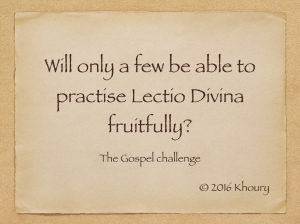
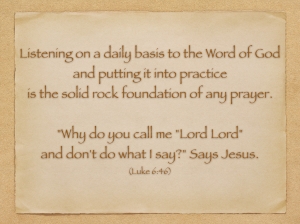

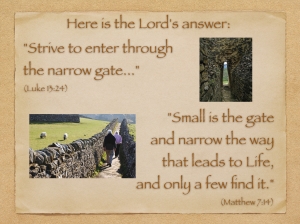
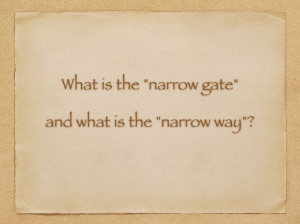
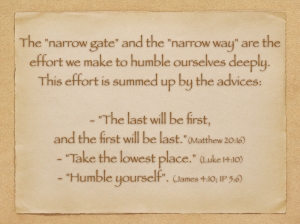
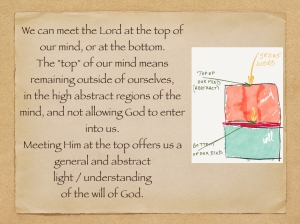
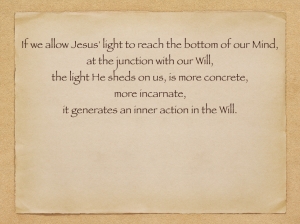
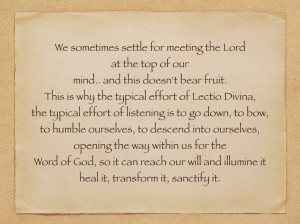
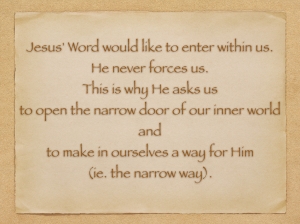
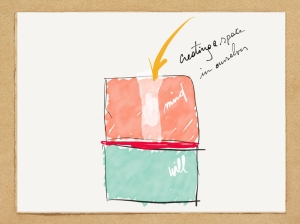
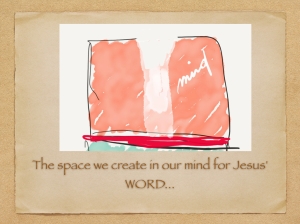
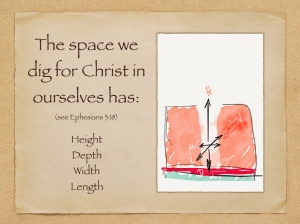
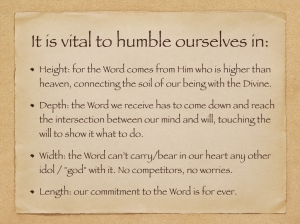
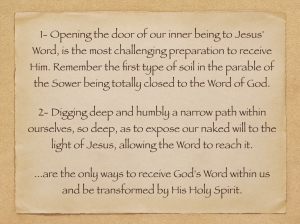
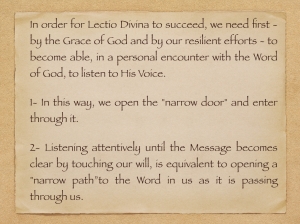
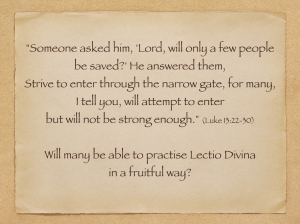
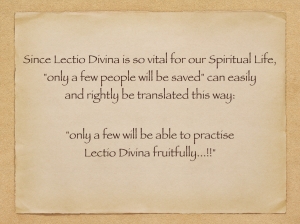


















 Jean is a French Catholic Theologian, specialised in Spiritual Formation, with more than twenty-five years of experience with Consecrated and Lay people. He obtained his Bachelors in Philosophy and his Masters in Spiritual Theology from Toulouse (France), and the Teresianum (Rome). He is presently completing his Ph.D. in Spiritual Theology at the Angelicum (Rome). Jean’s formation was greatly enhanced by the discalced Carmelite Fathers.
He has lectured in Spiritual Theology in different universities with a practical focus. Many articles, studies and books have been published internationally. In 2003, Jean founded the "School of Mary" which offers formation in Spiritual Life, many video courses being available at www.schoolofmary.org . Lectio Divina and Contemplative Prayer are amongst the most important forms of prayer addressed.
Jean gives Spiritual Direction on a regular basis and also gives retreats. He is married, has a daughter and is based in London.
Jean is a French Catholic Theologian, specialised in Spiritual Formation, with more than twenty-five years of experience with Consecrated and Lay people. He obtained his Bachelors in Philosophy and his Masters in Spiritual Theology from Toulouse (France), and the Teresianum (Rome). He is presently completing his Ph.D. in Spiritual Theology at the Angelicum (Rome). Jean’s formation was greatly enhanced by the discalced Carmelite Fathers.
He has lectured in Spiritual Theology in different universities with a practical focus. Many articles, studies and books have been published internationally. In 2003, Jean founded the "School of Mary" which offers formation in Spiritual Life, many video courses being available at www.schoolofmary.org . Lectio Divina and Contemplative Prayer are amongst the most important forms of prayer addressed.
Jean gives Spiritual Direction on a regular basis and also gives retreats. He is married, has a daughter and is based in London.
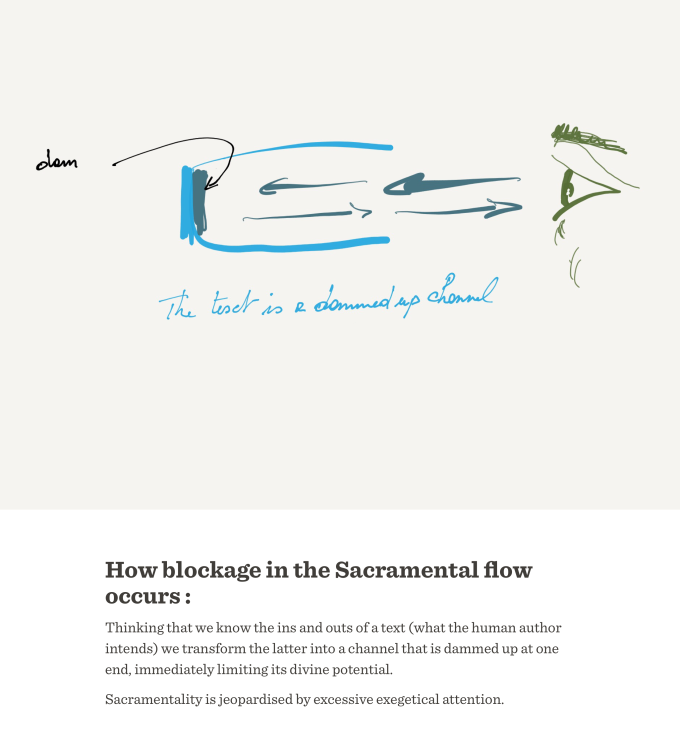
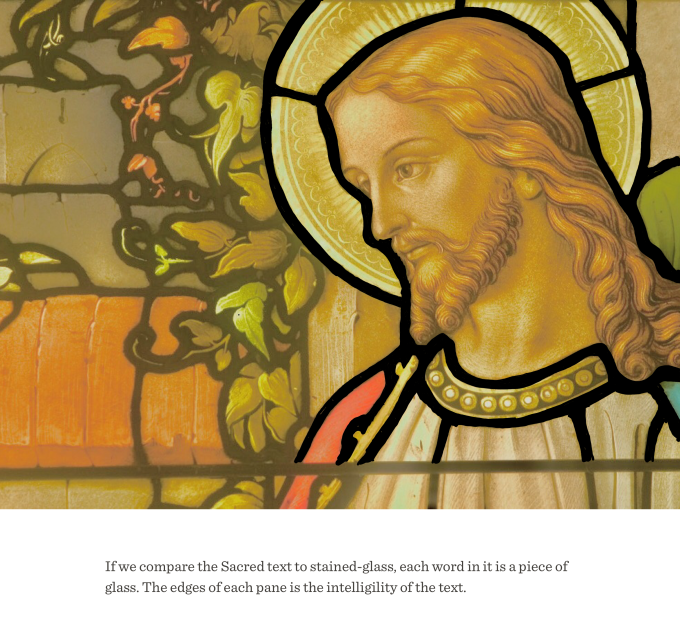
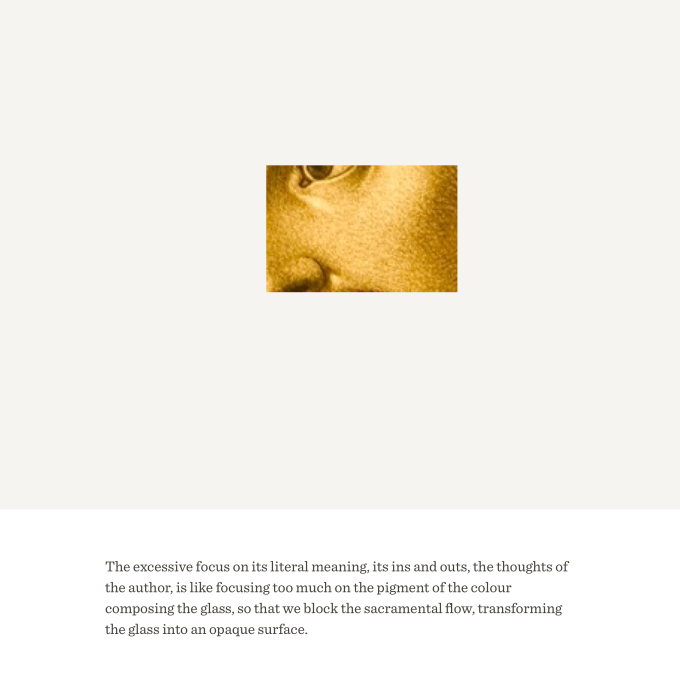
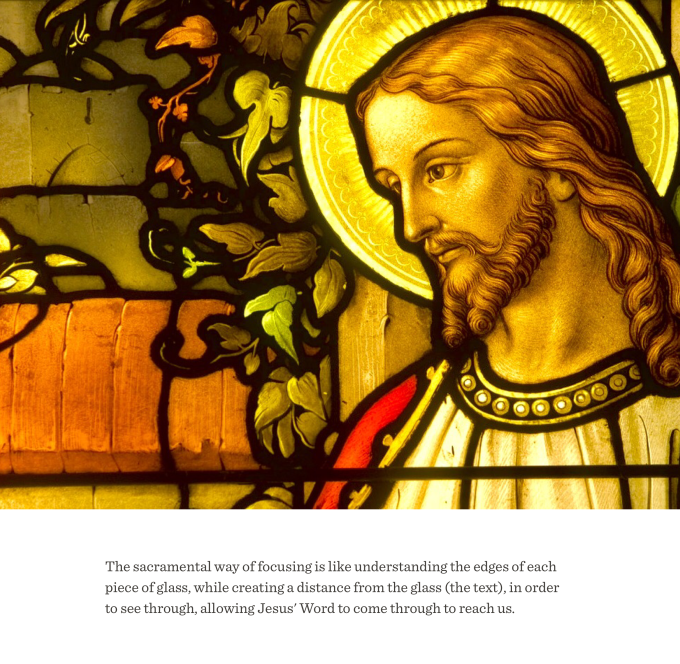
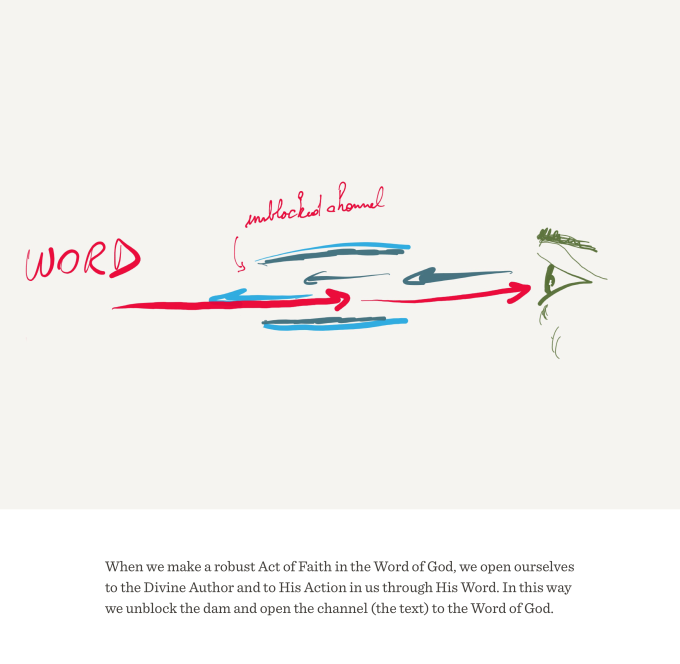
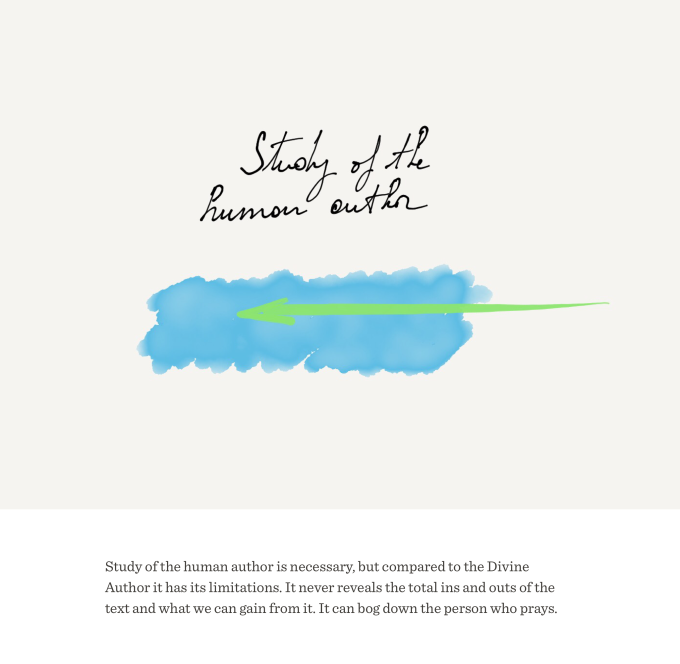
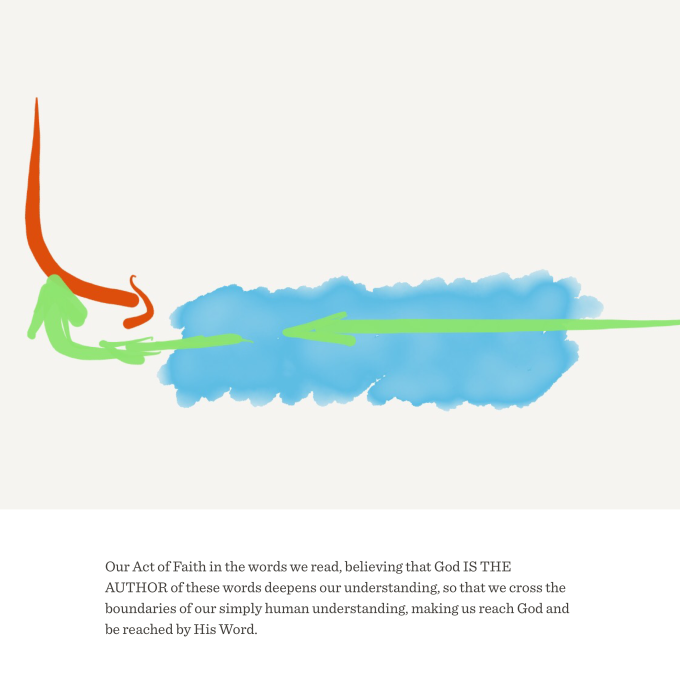
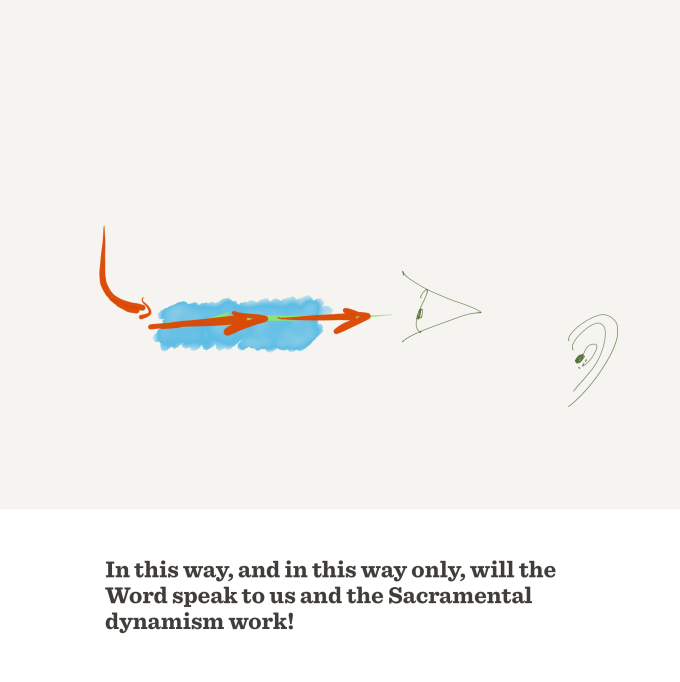
 Jean is a French Catholic Theologian, specialised in Spiritual Formation, with more than twenty-five years of experience with Consecrated and Lay people. He obtained his Bachelors in Philosophy and his Masters in Spiritual Theology from Toulouse (France), and the Teresianum (Rome). He is presently completing his Ph.D. in Spiritual Theology at the Angelicum (Rome). Jean’s formation was greatly enhanced by the discalced Carmelite Fathers.
He has lectured in Spiritual Theology in different universities with a practical focus. Many articles, studies and books have been published internationally. In 2003, Jean founded the "School of Mary" which offers formation in Spiritual Life, many video courses being available at www.schoolofmary.org . Lectio Divina and Contemplative Prayer are amongst the most important forms of prayer addressed.
Jean gives Spiritual Direction on a regular basis and also gives retreats. He is married, has a daughter and is based in London.
Jean is a French Catholic Theologian, specialised in Spiritual Formation, with more than twenty-five years of experience with Consecrated and Lay people. He obtained his Bachelors in Philosophy and his Masters in Spiritual Theology from Toulouse (France), and the Teresianum (Rome). He is presently completing his Ph.D. in Spiritual Theology at the Angelicum (Rome). Jean’s formation was greatly enhanced by the discalced Carmelite Fathers.
He has lectured in Spiritual Theology in different universities with a practical focus. Many articles, studies and books have been published internationally. In 2003, Jean founded the "School of Mary" which offers formation in Spiritual Life, many video courses being available at www.schoolofmary.org . Lectio Divina and Contemplative Prayer are amongst the most important forms of prayer addressed.
Jean gives Spiritual Direction on a regular basis and also gives retreats. He is married, has a daughter and is based in London.
 Jean is a French Catholic Theologian, specialised in Spiritual Formation, with more than twenty-five years of experience with Consecrated and Lay people. He obtained his Bachelors in Philosophy and his Masters in Spiritual Theology from Toulouse (France), and the Teresianum (Rome). He is presently completing his Ph.D. in Spiritual Theology at the Angelicum (Rome). Jean’s formation was greatly enhanced by the discalced Carmelite Fathers.
He has lectured in Spiritual Theology in different universities with a practical focus. Many articles, studies and books have been published internationally. In 2003, Jean founded the "School of Mary" which offers formation in Spiritual Life, many video courses being available at www.schoolofmary.org . Lectio Divina and Contemplative Prayer are amongst the most important forms of prayer addressed.
Jean gives Spiritual Direction on a regular basis and also gives retreats. He is married, has a daughter and is based in London.
Jean is a French Catholic Theologian, specialised in Spiritual Formation, with more than twenty-five years of experience with Consecrated and Lay people. He obtained his Bachelors in Philosophy and his Masters in Spiritual Theology from Toulouse (France), and the Teresianum (Rome). He is presently completing his Ph.D. in Spiritual Theology at the Angelicum (Rome). Jean’s formation was greatly enhanced by the discalced Carmelite Fathers.
He has lectured in Spiritual Theology in different universities with a practical focus. Many articles, studies and books have been published internationally. In 2003, Jean founded the "School of Mary" which offers formation in Spiritual Life, many video courses being available at www.schoolofmary.org . Lectio Divina and Contemplative Prayer are amongst the most important forms of prayer addressed.
Jean gives Spiritual Direction on a regular basis and also gives retreats. He is married, has a daughter and is based in London.
 Jean is a French Catholic Theologian, specialised in Spiritual Formation, with more than twenty-five years of experience with Consecrated and Lay people. He obtained his Bachelors in Philosophy and his Masters in Spiritual Theology from Toulouse (France), and the Teresianum (Rome). He is presently completing his Ph.D. in Spiritual Theology at the Angelicum (Rome). Jean’s formation was greatly enhanced by the discalced Carmelite Fathers.
He has lectured in Spiritual Theology in different universities with a practical focus. Many articles, studies and books have been published internationally. In 2003, Jean founded the "School of Mary" which offers formation in Spiritual Life, many video courses being available at www.schoolofmary.org . Lectio Divina and Contemplative Prayer are amongst the most important forms of prayer addressed.
Jean gives Spiritual Direction on a regular basis and also gives retreats. He is married, has a daughter and is based in London.
Jean is a French Catholic Theologian, specialised in Spiritual Formation, with more than twenty-five years of experience with Consecrated and Lay people. He obtained his Bachelors in Philosophy and his Masters in Spiritual Theology from Toulouse (France), and the Teresianum (Rome). He is presently completing his Ph.D. in Spiritual Theology at the Angelicum (Rome). Jean’s formation was greatly enhanced by the discalced Carmelite Fathers.
He has lectured in Spiritual Theology in different universities with a practical focus. Many articles, studies and books have been published internationally. In 2003, Jean founded the "School of Mary" which offers formation in Spiritual Life, many video courses being available at www.schoolofmary.org . Lectio Divina and Contemplative Prayer are amongst the most important forms of prayer addressed.
Jean gives Spiritual Direction on a regular basis and also gives retreats. He is married, has a daughter and is based in London.
 Jean is a French Catholic Theologian, specialised in Spiritual Formation, with more than twenty-five years of experience with Consecrated and Lay people. He obtained his Bachelors in Philosophy and his Masters in Spiritual Theology from Toulouse (France), and the Teresianum (Rome). He is presently completing his Ph.D. in Spiritual Theology at the Angelicum (Rome). Jean’s formation was greatly enhanced by the discalced Carmelite Fathers.
He has lectured in Spiritual Theology in different universities with a practical focus. Many articles, studies and books have been published internationally. In 2003, Jean founded the "School of Mary" which offers formation in Spiritual Life, many video courses being available at www.schoolofmary.org . Lectio Divina and Contemplative Prayer are amongst the most important forms of prayer addressed.
Jean gives Spiritual Direction on a regular basis and also gives retreats. He is married, has a daughter and is based in London.
Jean is a French Catholic Theologian, specialised in Spiritual Formation, with more than twenty-five years of experience with Consecrated and Lay people. He obtained his Bachelors in Philosophy and his Masters in Spiritual Theology from Toulouse (France), and the Teresianum (Rome). He is presently completing his Ph.D. in Spiritual Theology at the Angelicum (Rome). Jean’s formation was greatly enhanced by the discalced Carmelite Fathers.
He has lectured in Spiritual Theology in different universities with a practical focus. Many articles, studies and books have been published internationally. In 2003, Jean founded the "School of Mary" which offers formation in Spiritual Life, many video courses being available at www.schoolofmary.org . Lectio Divina and Contemplative Prayer are amongst the most important forms of prayer addressed.
Jean gives Spiritual Direction on a regular basis and also gives retreats. He is married, has a daughter and is based in London.
 Jean is a French Catholic Theologian, specialised in Spiritual Formation, with more than twenty-five years of experience with Consecrated and Lay people. He obtained his Bachelors in Philosophy and his Masters in Spiritual Theology from Toulouse (France), and the Teresianum (Rome). He is presently completing his Ph.D. in Spiritual Theology at the Angelicum (Rome). Jean’s formation was greatly enhanced by the discalced Carmelite Fathers.
He has lectured in Spiritual Theology in different universities with a practical focus. Many articles, studies and books have been published internationally. In 2003, Jean founded the "School of Mary" which offers formation in Spiritual Life, many video courses being available at www.schoolofmary.org . Lectio Divina and Contemplative Prayer are amongst the most important forms of prayer addressed.
Jean gives Spiritual Direction on a regular basis and also gives retreats. He is married, has a daughter and is based in London.
Jean is a French Catholic Theologian, specialised in Spiritual Formation, with more than twenty-five years of experience with Consecrated and Lay people. He obtained his Bachelors in Philosophy and his Masters in Spiritual Theology from Toulouse (France), and the Teresianum (Rome). He is presently completing his Ph.D. in Spiritual Theology at the Angelicum (Rome). Jean’s formation was greatly enhanced by the discalced Carmelite Fathers.
He has lectured in Spiritual Theology in different universities with a practical focus. Many articles, studies and books have been published internationally. In 2003, Jean founded the "School of Mary" which offers formation in Spiritual Life, many video courses being available at www.schoolofmary.org . Lectio Divina and Contemplative Prayer are amongst the most important forms of prayer addressed.
Jean gives Spiritual Direction on a regular basis and also gives retreats. He is married, has a daughter and is based in London.